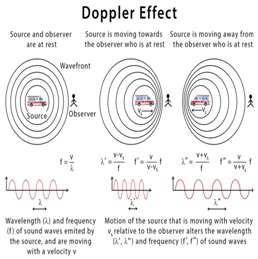Doppler radars to track and forecast weather
The India Meteorological Department’s (IMD) only Doppler radar in Mumbai, which surveys weather patterns and forecasts, got de-functional and stopped working amid the heavy rains.
Context
The India Meteorological Department’s (IMD) only Doppler radar in Mumbai, which surveys weather patterns and forecasts, got de-functional and stopped working amid the heavy rains.
What is a Doppler radar?
- A doppler radar provides long-range weather surveillance, detection and forecast for rainfall, cloud formation, thunderstorms and other weather conditions such as tropical storms.
|
Radar is a detection system that uses radio waves to determine the range, angle, or velocity of objects. |
Types of Doppler radars
There are different types of doppler radars:
- A S-band radar which provides surveillance up to 450-500 kilometres
- A C-band radar can provide surveillance up to 250-350 km
- Surveillance by an X-band radar is up to 100 km
How does it work?
- In radars, a beam of energy called radio waves is emitted from the antenna.
- When this beam strikes an object in the atmosphere, the energy scatters in all directions, with some reflected directly back to the radar.
- The larger is the object which deflects the beam, the greater is the amount of energy that the radar receives in return.
- The time required for the beam to be transmitted and returned to the radar allows weather forecasting departments to “see” raindrops in the atmosphere, and measure their distance from the radar.
- Doppler radar can provide information on both the position of targets as well as their movement.
- It does this by tracking the ‘phase’ of transmitted radio wave pulses; phase meaning the shape, position, and form of those pulses.
- As computers measure the shift in phase between the original pulse and the received echo, the movement of raindrops can be calculated, and it is possible to tell whether the precipitation is moving toward or away from the radar.

Doppler radars on India’s coastline
- India’s east coast, which is frequently affected by cyclones formed in the Bay of Bengal, has radars operational at eight locations — Kolkata, Paradip, Gopalpur, Visakhapatnam, Machilipatanam, Sriharikota, Karaikal, and Chennai.
- Along the west coast, there are radars at Thiruvananthapuram, Kochi, Goa, and Mumbai. Other radars are operating from Srinagar, Patiala, Kufri, Delhi, Mukteshwar, Jaipur, Bhuj, Lucknow, Patna, Mohanbar, Agartala, Sohra, Bhopal, Hyderabad, and

